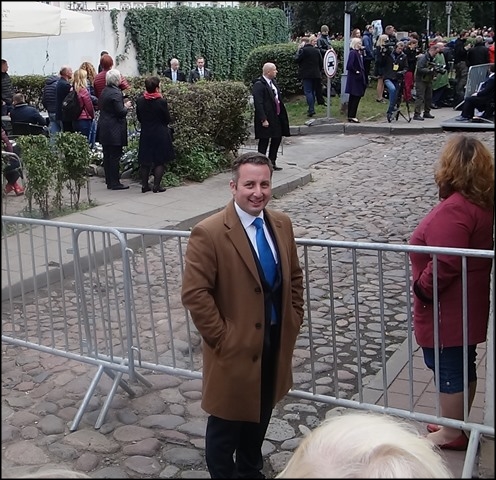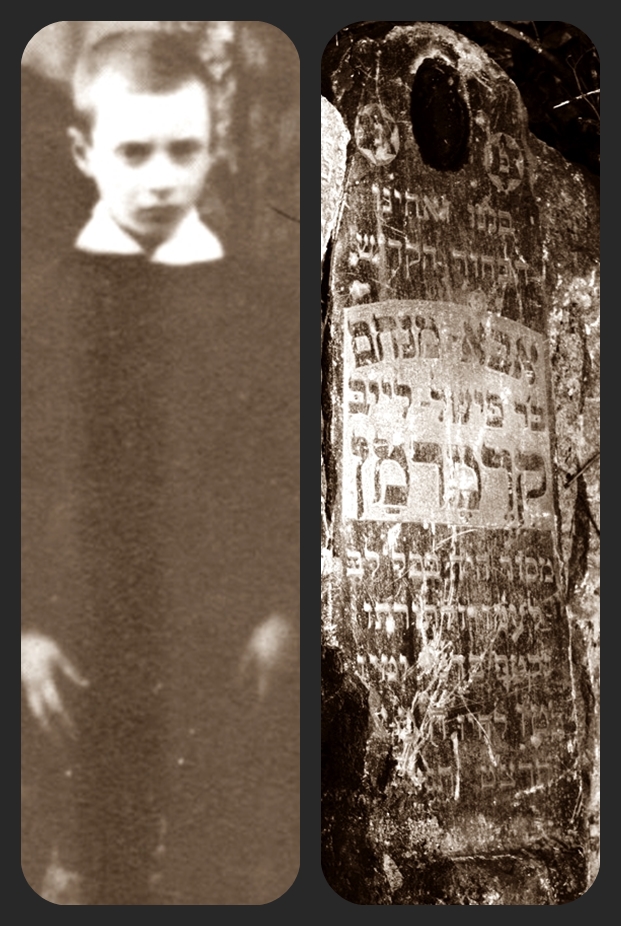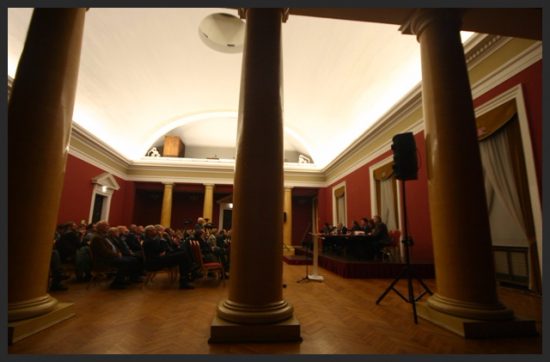[latest update]
◊
Congratulations (16 Aug 2021) to Lithuania’s gov on cancelling convention center
Ben Cohen in The Algemeiner
HISTORY OF THE LAST 7 YEARS
◊
Congratulations (16 Aug 2021) to Lithuania’s gov on cancelling convention center
Ben Cohen in The Algemeiner
HISTORY OF THE LAST 7 YEARS
◊
◊
VILNIUS—The following is Defending History’s translation of the text of today’s Vilnius City Council resolution posted on its website. See our report, and the earlier news of the prime minister’s widely heralded cancellation of CCC (“convention center in the cemetery”) to which this resolution is a direct response. See esp. the paragraph colored red below for rapid reference, where the resolution condemns the government’s “abandonment” of the CCC.
◊
VILNIUS CITY COUNCIL
RESOLUTION
ON VILNIUS PALACE OF CONCERTS AND SPORTS
August 25, 2021, No. 41
Vilnius mayor Remigijus Šimašius

IMAGE OF THE DAY: Elected chairperson of the Vilnius Jewish Community, Simon Gurevich, was not allowed past the security barrier, barring him from the Pope’s event to commemorate the Vilna Ghetto. At the earlier event at Ponár, he was not allowed to deliver his prepared remarks.
◊◊
Not only the living turn to dust; the dead do so as well. So too the tombstones we erect in their memory. Some people merit having their tombstone stand for one generation; others merit having their tombstone stand for two generations. But in the end, it gradually sinks until it is swallowed up by the earth.
S. Y. Agnon, A City in Its Fullness

Abba-Menachem Kremerman, who died at 15 in Vilna in 1939. He was buried at the Zaretsha (Užupis) Jewish cemetery. For years now, his gravestone, along with many others, lay in a heap at a garden center. And now, in 2017 it was among a batch dumped by Vilnius municipal authorities on the site of a different Jewish cemetery, the Old Vilna Jewish Cemetery at Piramónt (in Šnipiškės), now reconceived as real estate for a national convention center. What’s going on?
The dispute over Vilna’s oldest synagogue has been brewing for more than a decade. Recently, as a result of the involvement and protestations of a coalition of rabbinic leaders and activists, the fight has intensified.
The Jewish community in Lithuania is hundreds of years old. The Vilna Gaon, who lived in the 18th century, and other great Torah luminaries helped Vilna earn its reputation as the Jerusalem of Eastern Europe.
The Shoah. Lithuania has rightfully earned one of the most sordid reputations of anti-Semitism based upon its participation in the Holocaust. While almost everyone heard of Babi Yar, where 33,000 men, women, and children were murdered, many have not heard about Ponary (Ponár), the forest outside of Vilna where double that amount — approximately 70,000 Jews — were rounded up and massacred by Lithuanian Nazi collaborators.
Škirpa and Noreika
Rabbi Sholom Ber Krinsky led his 23rd annual Grand Menorah Lighting in the center of Vilnius on Wednesday evening 28 December, for (in Lithuanian Yiddish) di fínfte líkhtale, the fifth candle of Chanukah. The event attracted hundreds from different faiths who filled the square to celebrate harmony in the Lithuanian capital. It was addressed by Mayor Remigijus Šimašius and attended by diplomats from the embassies of Israel, Norway, Turkey, and the United States, among others, and dignitaries from the nation’s parliament, among them MP Emanuelis Zingeris, cofounder of the city’s Jewish museum.
MEDIA COVERAGE OF THE VILNIUS CITY-CENTER MENORAH:
City of Vilnius TV3.lt Lrytas.lt 15min.lt Delfi.lt Wilnoteka.lt
The event seemed to succeed even more this year following various alleged attempts at sabotage. Many of the Vilnius Jewish residents present were visibly thrilled that Mayor Šimašius had boldly ignored some public calls, one from a Lithuanian academic, one from an unsigned piece on the official Jewish community website, and one from an antisemitic author, all of which imlpied that it was suddenly (after 22 years of previous universally beloved events) “controversial,” perhaps for featuring Rabbi Krinsky, who has recently been the target of a bizarre campaign of harassment.
A big part of the crowd comprised young people who particularly enjoyed the candle lighting, the smaller menorah of ice, and the large tent where traditional foods were served to hundreds of Vilnius residents. Chanukah menorahs were handed out to all who wanted one.Continue reading



JERUSALEM—The Simon Wiesenthal Center’s Israel Office today issued a press release (text below), including a quote from its director, Dr. Efraim Zuroff, calling on Visvaldas Matijošaitis, the mayor of Kaunas (Kovno), Lithuania’s second city, to ban weddings and other celebrations from the now privatized parts of the historic Seventh Fort, where thousands of Kaunas Jews were humiliated, tortured and murdered starting with the first week of the Lithuanian Holocaust in late June 1941.
VILNIUS—Briton Mark Adam Harold, also known as Mark Splinter, this city’s sole foreign elected City Council member, spoke out in an interview published today in 15min.lt calling for the city to accept the 2015 petition of a group of intellectuals to remove plaques honoring Holocaust collaborator Jonas Noreika. In his reply to a pointed question, he also added that the city-center street named for Nazi collaborator Kazys Škirpa be renamed for Righteous of the Nations (rescuers of civilians targeted for death by the Nazis and their local partners). He also challenged the city’s mayor, implying that there might be an element of cowardice in failure to undertake simple measures that would immeasurably improve the international reputation of Lithuania’s storied capital.
VILNIUS—This city’s dashing young new mayor, Remigijus Šimašius, elected last spring, has now added Yiddish to the previously bilingual (Lithuanian-English) signs, wrought of expensive metal in rounded-edged casement, in times of austerity for pensioners and others in town. These signs are being placed near Soviet-era edifices made of pilfered Jewish gravestones (matséyves) that are a blot on this charming East European capital. This is the latest model featured on the mayor’s office website:
VILNIUS—For many years it has been a source of deep pain to many Lithuanians, Jews and others that the capital (and cities and towns around the country) continue to have street names honoring Holocaust perpetrators and collaborators but none for the true heroes of the Lithuanian Holocaust — the Lithuanian rescuers, who risked their and their families’ lives to “just do the right thing” and rescue some person or persons of a minority marked for rapid murder on the basis of Jewish birth. In the Baltics, the rescuers had to have much more courage even than in many other countries, because they were regarded as enemies of nationalist patriotism, as then constructed, not only as defiers of the German occupying forces’ program of extermination. They were regarded here as “enemies of Lithuania” (or Latvia, or Estonia), and sympathizes of communism who could expect no mercy if found out either by the German authorities or the local Lithuanian forces.
In 2013, Defending History objected to the plan to name a street for Ona Šimaitė in the boondocks and pressed for her street to be right in the city center.